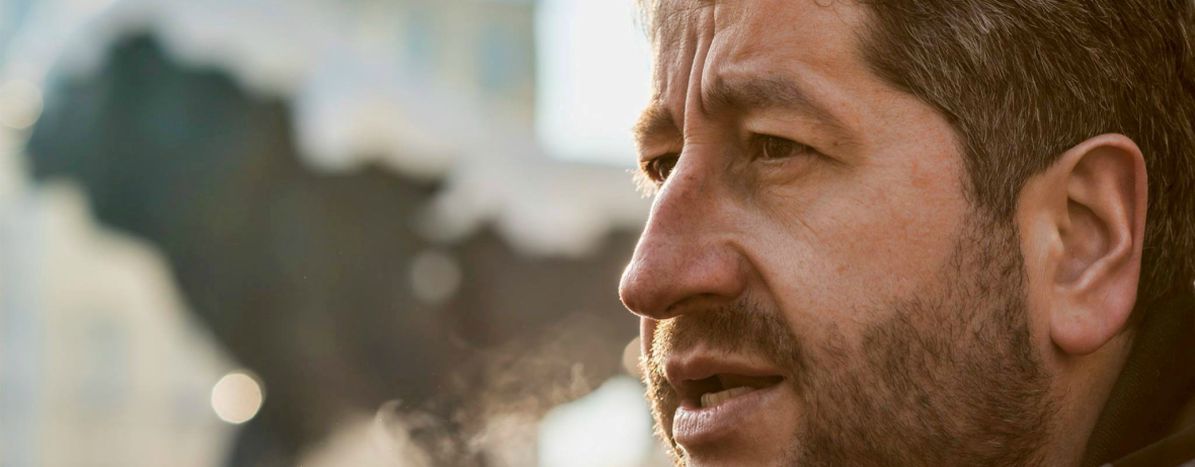
"Yes, Bulgaria!": A new party brings hope after elections
Published on
For many observers, the outcome of Bulgaria’s elections this weekend only confirmed the status quo. However, there was a new phenomenon on the political scene: Yes, Bulgaria - led by a former minister - which won 2.88% of the vote. A tiny number, perhaps, but some see it as a promise for further political development.
Following Bulgaria's presidential vote last year and Prime Minister Boyko Borisov's subsequent decision to resign for the second time in four years, the country found itself in an uneasy political situation. However, even with Borisov’s departure his party - Citizens for European Development of Bulgaria (GERB) - managed to win 32.65% of the electoral support, placing it at a first place. The Bulgarian Socialist Party came second with 27.2%; lower than the polls predicted. The other parties to win seats were the nationalist coalition United Patriots (9.07%), the ethnic party Movement for Rights and Freedoms (8.99%) and the newly arisen Volya, or “Will” (4.15%); a populist party led by businessman Vesselin Mareshki which ran on a platform of strong immigration controls and closer ties to Russia.
The creation of new parties like Yes, Bulgaria and the right-wing New Republic mark a change in the political landscape, and a new hope for the electorate. One of Yes, Bulgaria’s main campaign promises was to fight against corruption, as well as implementing education and health reforms. Their leader, Hristo Ivanov, was as a former justice minister in Boyko Borisov’s cabinet who resigned after the government failed to implement a draft of justice reform.
This is a time of political uncertainty in Bulgaria. According to Transparency International Bulgaria ranks as the most corrupt country in the European Union, and up to 50% of the population believe the Bulgarian authorities have made no significant impact in the fight against corruption; which may explain the appetite for new voices in politics.
There were more than 20 different parties and coalitions from across the political spectrum running in the election; something which is viewed by some as a positive sign that Bulgarian voters are searching for a different perspective.
“When you can’t find something you want, you create it”
Mariyan Rumenov, 25-year-old law student, was among the candidates for Yes, Bulgaria in the northeastern city of Targovishte, where he grew up.
“I had several reasons for participating,” says Mariyan. “As a young man with education who has chosen to stay in the country, my conscience does not allow me to stay passively while it destroys itself,” says Mariyan. According to him, 18 years after the collapse of the Eastern bloc there is still need to limit the presence in power of remnants of the former communist regime, which makes any kind of meaningful reform nearly impossible.
Vladimir Ivanov, a 23-year old who works in finance, also agrees that young Bulgarians are becoming much more politically active: “This is exactly what I and many others strive to be – young, politically active working people with Western attitudes, who want their country to be more like Germany.”
Yes, Bulgaria’s supporters, who come from a variety of backgrounds, are largely concentrated in the capital. They include health sector workers, academics, lawyers, and IT specialists. But when you ask them why they’re now deciding to become more politically active, the answers are much the same.
“When you can’t find something you want, there comes a moment when you decide to create it yourself,” said Hristo Ivanov, during a press conference prior to the vote. Ivanov has stated that the party is a centrist one, with a “clear profile.” According to him, people don’t have any difficulties in understanding the “illness that the Bulgarian state suffers from.”
Yes, Bulgaria also aims to create a more united front, and during the elections they teamed up with two parties: the Greens — who have become famous thanks to their involvement in several protests in recent years — and the liberal Movement for European Unity and Solidarity, which was created by 2014 as a protest against the so called Oresharski cabinet, which appointed media mogul Delyan Peevski as the head of its national security agency.
“Now there is a party for educated people”
Yes, Bulgaria did not gather enough votes in order to enter Parliament, something which Ivan Bakalov, the editor of the online daily e-vestnik, believes may be the result of an unfocused campaign during the elections. Nevertheless, their success has given some people hope for the future.
“For a long time, the Bulgarian political scene didn’t have a party which represented educated people,” says Vladimir, who seems ready to support Yes, Bulgaria in the future. “These are people who work hard, education and the economy are of primary importance for them. Now, such a party exists.”



